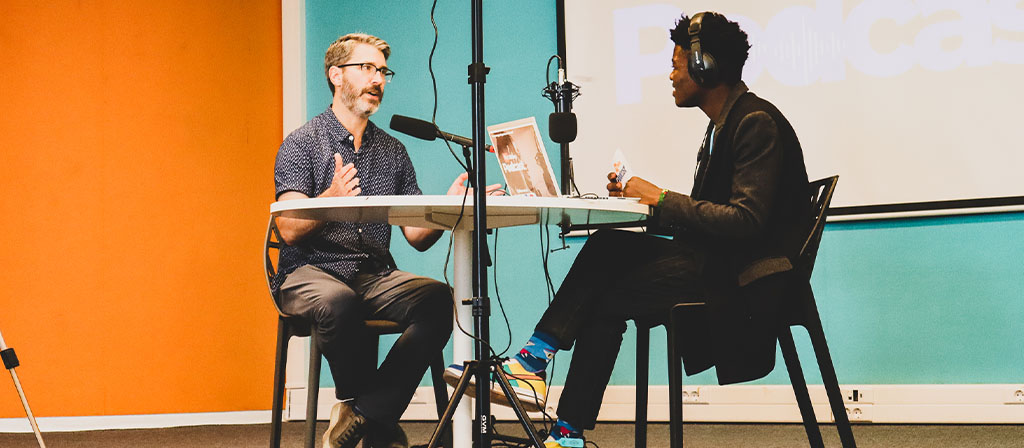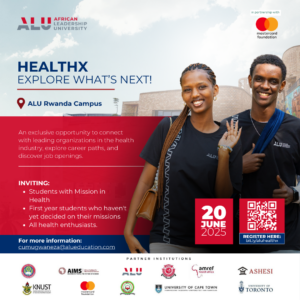By next year, Africa will have the largest workforce in the world and by the end of the century, 40% of the world’s total population will be in Africa. Faced with these projections, there is a need to reimagine how we educate more of Africa’s leaders to solve challenges and capitalize on opportunities in the future. For John Hall, Chief Product & Technology Office at ALU, the answer to Africa’s education challenges lies in using technology to provide scalable, affordable and practical learning experiences to as many future African leaders as possible.
Speaking at ALU’s ReImagine Education webinar themed “Revamping Africa’s education system using technology”, John Hall made a case for why there was a need to revamp Africa’s education system. Africa has a young and growing population with a median age of about 19.7 years. Though the largest percentage of Africa’s population is around university matriculation age, there are not enough opportunities and this key population lacks access to quality tertiary level education.
“Africa ranks second highest in wealth inequality. Inequalities extend beyond just wealth to gender inequalities in which male completion rates for secondary school education in Sub-Saharan Africa is 46% as compared to 41% for females. This has lasting long term impacts on income and wages inequality across generations in the future,” added John Hall.
“Africa ranks second highest in wealth inequality. Inequalities extend beyond just wealth to gender inequalities in which male completion rates for secondary school education in Sub-Saharan Africa is 46% as compared to 41% for females. This has lasting long term impacts on income and wages inequality across generations in the future,” added John Hall.
Despite some of these grand challenges faced by mother Africa, there exists opportunities to maximize efforts towards educating Africa’s next generation of ethical, entrepreneurial leaders. “In 2010, only 6% of Sub-Saharan Africa’s population were daily Internet users in comparison to over 30% daily internet users on the continent as of today. There has been a huge uptake in the penetration of mobile and internet technology; which presents new opportunities to harness technology to revolutionize education,” commented Hall.
The African Leadership University’s (ALU) education model is leveraging technology to expand access to world class education at an affordable cost. ALU’s education is built on 4 pillars; leadership core, missions not majors, self directed and experiential learning, and tech-enabled learning.

Tech-enabled learning:
Through tech-enabled learning, ALU is making education accessible on a wider scale. ALU is reimagining the nature of online learning by supplementing the online experience with learning hubs at major city hubs. ALU hubs create an ecosystem for student place-based learning, peer and local stakeholder collaboration, and ultimately building the long term relationships in close proximity to Africa’s grand challenges and opportunities. To date, ALU students have spent part of their learning journeys at the ALU Kigali hub in Rwanda, the Kampala hub in Uganda and the Silicon Valley hub in California, USA.
Leadership core curriculum:
This develops the skills, mindset and values that set our students and graduates apart from their peers when it comes to operating in an evolving global, virtual, distributed, and high tech world.
Missions not majors:
Our focus at ALU is on practical learning outcomes. We care more about what our students and graduates can do versus what they know. This means instead of picking a major like you would do in a traditional university, our students start with identifying what they are passionate about. The things that they are passionate about are mapped to the 14 grand challenges and opportunities facing Africa and the globe. Finally, ALU students construct their learning journey so that they attain skills, competencies and knowledge that will help them address real-world problems not only facing Africa but the globe.
Self directed and experiential learning:
With the world evolving rapidly, there is always a need to upskill, re-learn or gain new skills to remain competitive through time. The best way to ensure ALU students and graduates remain competitive is not through teaching them subject matter but instead, teaching them how to learn. Through internships, research opportunities, community projects and conferences, our students learn by doing and gain real world experience at the same time.
John Hall concluded,
“ALU is uniquely positioned to revamp Africa’s education as it has structural affordances built into its learning model.”
The ReImagine Education webinar series is a monthly masterclass session where members of the ALU community engage with prospective students, educators, partners and the public on trends, advances and opportunities in the education sector; and how ALU is contributing towards the future of education.






